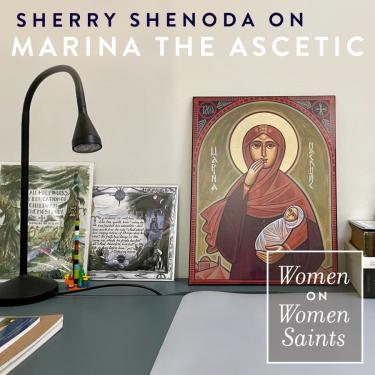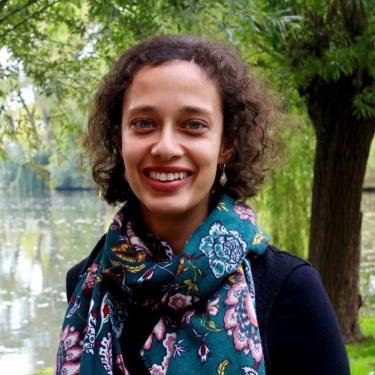
The bare details of her life are simple, but the implications outline a path to understanding both the communal nature of sin and the communal nature of salvation.
Also called St Marina the Monk, this Saint was thought to have been born in Turkey or Lebanon and died in Syria. She lost her mother at an early age and when her father offered to find her a spouse so he could see her settled and be free to join a monastery, Marina refused.
He didn’t know how to care for her and fulfill his own calling, but Marina shaved her hair, dressed as a boy, and entered the monastery with her father. They lived this way for ten years, until his departure, after which she remained in the monastery as a monk.
One day, after a trip with three other monks to the city, an innkeeper’s daughter accused Marina of fathering her child. Marina remained silent in the face of accusation, cared for the child, and her sacrifice was discovered only after her death.
In the icon of St. Marina she is often shown holding the child, with her hand covering her mouth.
Marina’s life shines with an otherworldly light. She understood, deeply, the communal nature of both brokenness and salvation. Elder Zosima advises in the Brothers Karamazov: “There is only one salvation for you: take yourself up, and make yourself responsible for all the sins of men.”
Marina takes on, in love—which equates to sacrifice—that which isn’t “hers” to bear. And as Elder Zosima says “and the moment you make yourself sincerely responsible for everything and everyone, you will see at once that it is really so, that it is you who are guilty on behalf of all and for all.”
When we suffer unjustly, we take part in the suffering of Christ, who suffers unjustly and takes on the sins of all humankind. In so doing, Christ saves all.
In the poem “Renascence” by Edna St. Vincent Millay, she writes “The world stands out on either side/No wider than the heart is wide.” St. Marina’s willing sacrifice is Christ-like love, heart-wide as the world, and it is the type of love that saves.
Her love doesn’t only save the mother of the child, who repents along with the soldier who fathered her child, when the details are made known. Marina’s sacrifice saves everyone around her. The monks, enlightened by her humility, the abbot, the innkeeper, and the child. It saves Marina herself. It becomes for her a path to salvation. May we live as heart-wide as St. Marina, with our hands over our mouths to cover the faults of our neighbors, and may her prayers sustain us!
Sherry Shenoda, MD, is a pediatrician, poet, and novelist. She has testified before the US Senate on the effects of armed conflict on children. Her latest book is a collection of poems titled The Mummy Eaters.



